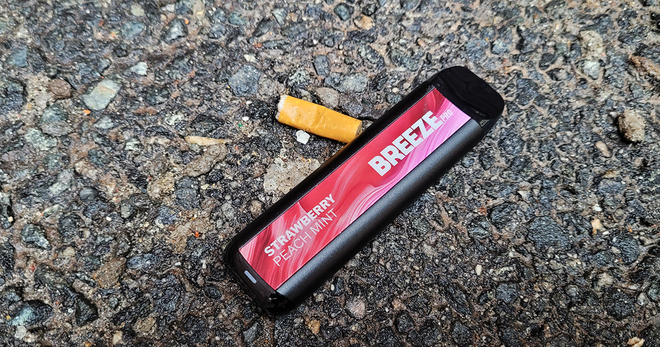Happy 100th, National Parks! Now, how about going 100 percent smoke-free?
As the National Park Service celebrates 100 years in service of the public and the protection of nature, it has an opportunity to take another leap forward in its mission by going 100 percent smoke-free. After all, smoking isn’t just bad for our health; it’s bad for the environment, too.
Since the National Park Service was founded in 1916, it has grown to 59 national parks and 410 total protected sites, conserved more than 84 million acres of majestic lands and seas, and been “America’s backyard” to hundreds of millions of visitors. While the park service bans smoking in park buildings and government vehicles, and some parks have additional smoke-free policies, smoking is still allowed in many outdoor areas.
A 100 percent smoke-free policy for national parks would mean:
- Curbing cigarette butts littered alongside America’s treasures. Cigarettes are the no. 1 most littered item, making up nearly 38 percent of all collected litter in the United States. Seventy-five percent of smokers report disposing of cigarettes on the ground or out of a car.
- Protecting the environment from the toxicity of cigarette waste. Nearly all cigarettes —98 percent—have plastic non-biodegradable filters, in addition to toxins that can leach into waters and poison fish. When animals eat cigarette butts, they can die from choking or toxic exposure.
- Safer park visitors. Secondhand smoke is still a problem outdoors. As the U.S. Surgeon General stated in 2006: “there is no risk-free level of exposure to secondhand smoke.” The Centers for Disease Control and Prevention estimates that 58 million nonsmokers are exposed to secondhand smoke, and that secondhand smoke kills more than 400 infants and 41,000 nonsmoking adults every year.
Learn more about the environmental impacts of tobacco.
More in harmful effects of tobacco
Want support quitting? Join EX Program
By clicking JOIN, you agree to the Terms, Text Message Terms and Privacy Policy.
Msg&Data rates may apply; msgs are automated.


